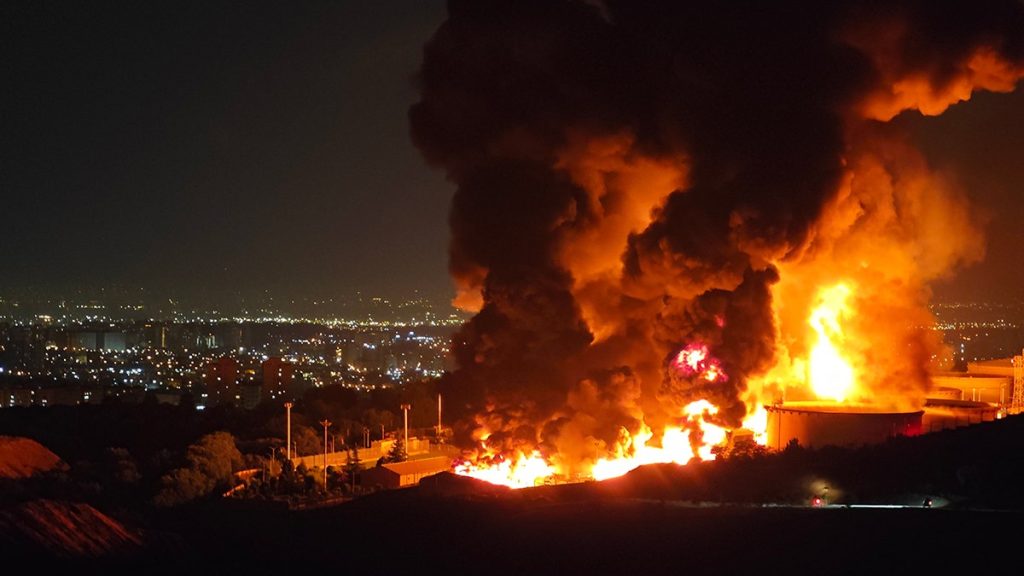President Donald Trump has significantly influenced both international and national events since his return to office five months ago. His handling of the ongoing conflict between Iran and Israel has drawn attention, with analysts deeming it a display of “masterful ambiguity.” This pivotal role is underscored by a recent escalation in military actions, including Israel’s operations against Iran. As both countries face heightened tensions, Trump’s diplomatic posture raises questions about the future of relations and potential nuclear negotiations.
Article Subheadings
1) Overview of Recent Escalations
2) Trump’s Influence on Israeli Operations
3) The Role of Iran in Regional Conflicts
4) Reactions from the United States and Allies
5) Historical Context of U.S.-Israel Relations
Overview of Recent Escalations
The conflict between Israel and Iran has escalated dramatically since April 2024, when Iran openly engaged in military actions against Israel, launching hundreds of missiles aimed at civilian targets. This marked a significant turn in the ongoing tensions that have simmered for over a year. The Israeli Defense Forces (IDF), supported by the United States and its allies, successfully intercepted these attacks, mitigating casualties but still absorbing some damage in the process. Despite calls for restraint from President Biden’s administration, which sought to prevent further escalation, Israel responded with targeted counter-attacks against Iranian interests.
The situation reached a critical point following a series of confrontations, with Israel launching precise strikes that not only aimed at damaging Iran’s military capabilities but also intended to send a clear message regarding its own defense capabilities. This calculated move prompted a delicate balance in international diplomacy as military actions began to align closely with U.S. foreign policy shifts under Trump’s administration.
Trump’s Influence on Israeli Operations
President Trump’s return to political prominence has been marked by a significant influence on Israeli military decisions. Analysts suggest that Trump granted Israeli Prime Minister Benjamin Netanyahu the approval needed to intensify military operations against Iran. The green light coincided with a window of opportunity after negotiations with Iran over its nuclear program stalled. Trump’s diplomatic strategy increasingly empowers Israel to act decisively against Iranian aggression, creating a dynamic shift in the balance of power in the region.
This new phase of aggression reflects a broader strategy where Trump’s administration, through an assertive foreign policy, seeks to reshape the landscape of Middle Eastern diplomacy. By openly supporting Israeli military actions, the Trump administration aims to leverage its relationship with Israel while also attempting to exert pressure on Iran, urging it to return to negotiations regarding its nuclear ambitions. The historical importance of this strategy is underscored by the longstanding ties between the U.S. and Israel, yet it also raises concerns about the potential for wider conflict in the region.
The Role of Iran in Regional Conflicts
Iran’s involvement in regional conflicts has escalated significantly, culminating in a robust response to perceived threats from Israel and the U.S. Theocratic leadership under Ayatollah Khamenei has faced increasing scrutiny as economic struggles and international isolation deepen. Analysts note that Khamenei’s failures in addressing these issues have led to a reliance on both proxy forces and military responses as a means of asserting power and influence across the region.
Reactions from the United States and Allies
U.S. officials have expressed varying degrees of support for Israel’s strategies, with many viewing the current administration’s ambiguous stance as a strategy to enhance U.S. leverage. The Biden administration has largely sought to restrain Israeli operations while attempting to maintain strong bilateral relations. However, the recent shifts encourage a more assertive approach to countering Iranian provocations, evidenced by the U.S. extending military support to Israel amidst rising tensions.
Historical Context of U.S.-Israel Relations
The historical context of U.S.-Israel relations plays a crucial role in understanding the current dynamics of the Middle East. Following decades of strategic partnership, U.S. policy has often shifted in response to regional conflicts. Support for Israel has been a cornerstone of American foreign policy since the establishment of the state in 1948, underlining a commitment to democratic governance and stability in the region.
| No. | Key Points |
|---|---|
| 1 | Trump has redefined U.S. engagement in the Middle East, impacting relations with both allies and adversaries. |
| 2 | Israel’s military operations have escalated in response to Iranian threats, receiving tacit approval from the U.S. |
| 3 | Iran’s leadership faces increasing challenges from both domestic issues and regional conflicts. |
| 4 | U.S. strategy aims to balance military support with diplomatic efforts to curb Iranian aggression. |
| 5 | The historical relationship between the U.S. and Israel continues to influence current and future policies in the region. |
Summary
The ongoing conflict between Israel and Iran, alongside Trump’s impactful return to the political arena, marks a critical juncture in Middle Eastern diplomacy. As military actions escalate and diplomatic negotiations falter, the stakes are higher than ever for U.S. foreign policy. The developments will likely have lasting ramifications that could reshape not only the relationship between these nations but also the overall geopolitical landscape in the region.
Frequently Asked Questions
Question: What has been Trump’s approach towards Israel and Iran?
Trump’s approach has been characterized by strong support for Israel’s military actions against Iranian threats. He has provided tacit approval for escalated military operations while maintaining a strategy of “masterful ambiguity” in negotiations with Iran.
Question: How has Iran reacted to Israeli strikes?
In response to Israeli military strikes, Iran has engaged in aggressive rhetoric and has attempted to bolster its proxy forces throughout the region. The Iranian government has struggled with internal pressures while grappling with international isolation.
Question: What does the future hold for U.S.-Iran negotiations?
Future U.S.-Iran negotiations remain uncertain as military tensions persist. The Biden administration aims to leverage recent events to bring both parties back to the negotiating table, yet the prospects for successful diplomacy are clouded by ongoing escalation and mistrust.


